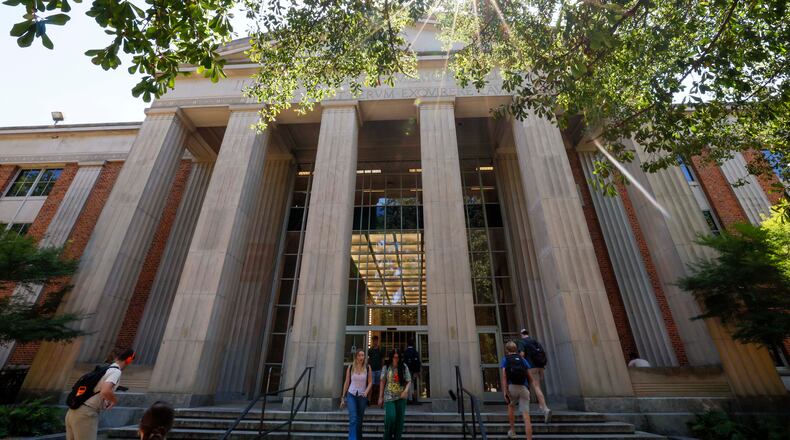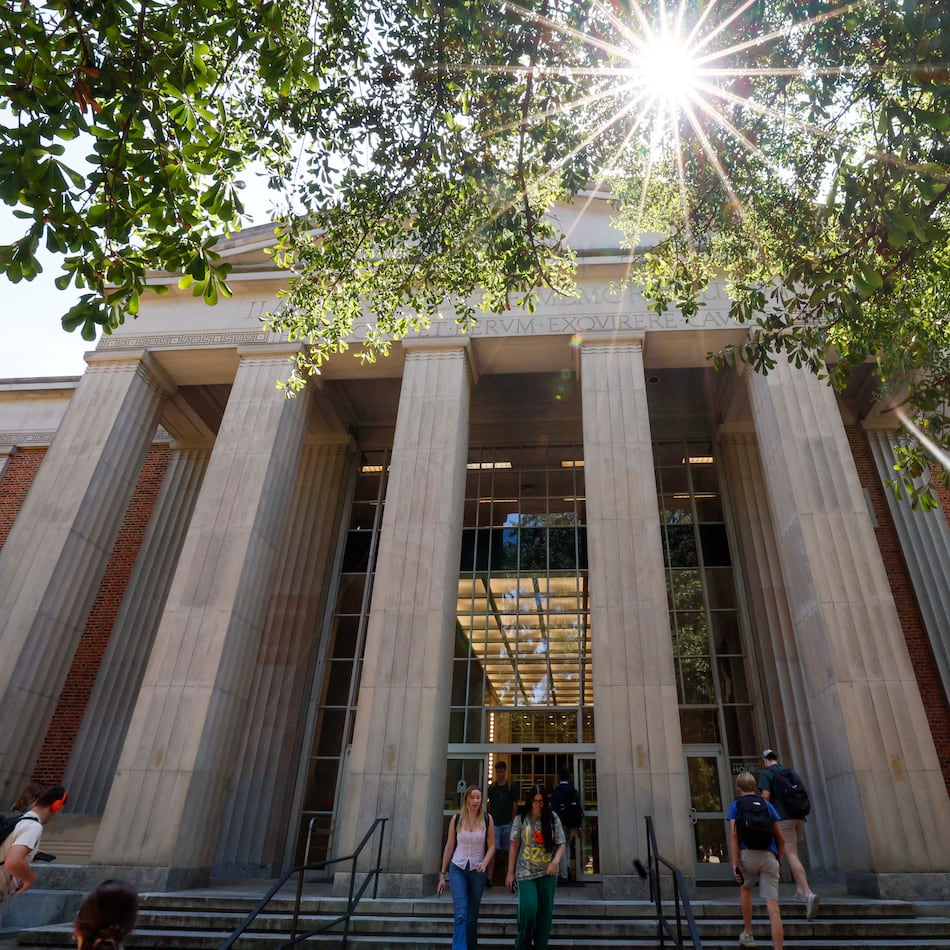The University of Georgia could soon limit the number of foreign workers it employs, a result of the $100,000 fee that President Donald Trump has imposed on some H-1B visas.
Last week, the flagship public school informed its departments that requests to hire workers who require the visa — and the exponentially increased fee that now comes with it — “will be considered only in exceptional circumstances.”
“Were the fee to be required in connection with the hiring and sponsorship of an employee, the hiring unit could inform the candidate that the University cannot pay the fee, and the hiring process would terminate,” reads the Nov. 3 email sent to deans, department heads and others. “While visa sponsorship fees are considered a cost of doing business for U.S. employers, employers are never compelled to sponsor an employee for a U.S. visa.”
The memo was obtained by The Atlanta Journal-Constitution and verified by UGA.
Designed to attract highly skilled workers to the U.S., the H-1B program has long been used by universities to recruit top global talent to their campuses, with the application process costing employers a few thousand dollars.
That changed in September, when Trump signed a proclamation claiming the program had been “deliberately exploited” to replace American workers. His administration has said the massive price hike is meant to encourage U.S. companies to hire more Americans. It later clarified that the fee won’t apply to foreign workers who already hold a U.S. visa.
Trump defended the H-1B program in a Tuesday interview with Fox News, saying the U.S. needs to “bring in talent.”
UGA said in a statement to the AJC that the proclamation “applies only to a limited subset of new visa applications.” The school had more than 60 new H-1B visas approved in fiscal year 2025, according to federal data. With the new fee, that number could drop.
The American Council for Education wrote a letter to the Department of Homeland Security last month, asking that American universities be made exempt from the fee. “H-1B visa holders working for institutions of higher education are doing work that is crucial to the U.S. economy and national security,” wrote ACE president Ted Mitchell, adding that they contribute to “groundbreaking research” and staff university hospitals.
Charles Kuck, an Atlanta-based immigration attorney, said the price hike is causing universities to implement hiring freezes. “There are very few universities who can afford to pay a fee like this,” Kuck said. “I don’t care how big your endowment is.”
Kuck is part of a lawsuit challenging the legality of Trump’s proclamation. He hopes the U.S. District Court for the Northern District of California will issue a ruling against the administration in late December.
“You want the best educators in the world teaching your kids. They’re not necessarily all from the United States,” he said.
For universities, the H-1B program is used to augment the American workforce, said Heather Stewart, director of immigration policy at NAFSA: Association of International Educators.
“It is seeking to find the best individuals to be on our campuses to do that work of educating the next generation of U.S. workers,” said Stewart, questioning the purpose of the $100,000 fee.
“Is that solving a problem, or is that creating one?” Stewart asked.
About the Author
Keep Reading
The Latest
Featured

